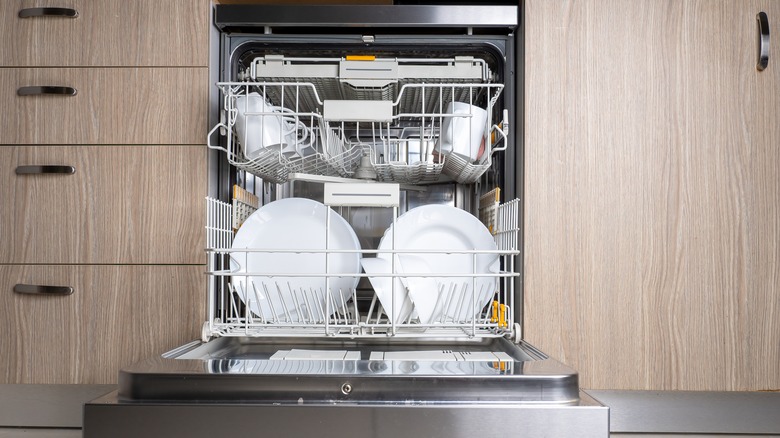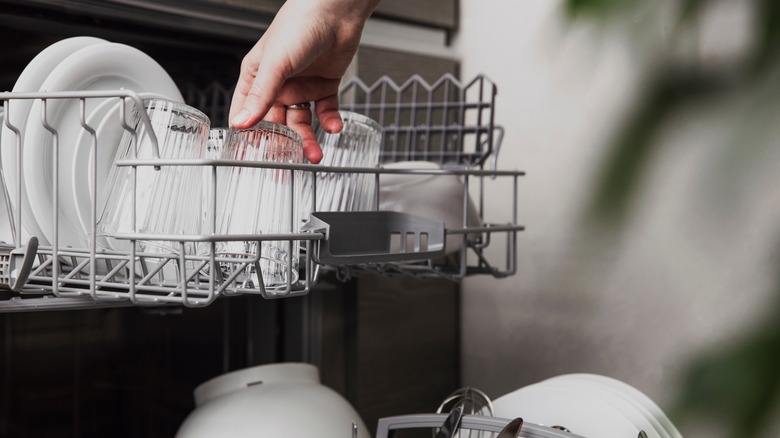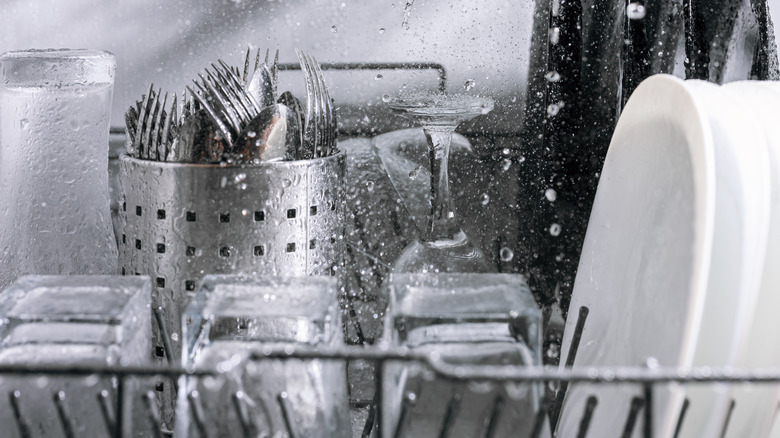Is It Bad To Run Your Dishwasher Every Day?
Dishwashers are one of the most convenient and life-changing inventions of the 20th century. Not only do they make the task of washing your dishes drastically easier, but they're also much more energy and water efficient, with Style Vanity stating dishwashers use 70% less water than hand washing. Moreover, an average dishwasher is expected to work for at least 10 years, if not longer, making it a worthwhile investment.
That is, as long as you know how to take care of it. There are a few obvious ways to keep your dishwasher lasting as long as possible, including removing any large bits of food like bones, scraping plates free of leftovers and trash, and taking care not to overload and exceed your dishwasher's capacity (via Consumer Reports). Making sure not to overuse your dishwasher is also important. Most families run at least one load of dishes through the dishwasher a day, but is that the best for your dishwasher?
Aim for five loads a week
Running your dishwasher is a vital part of keeping it in working condition — in fact, it's possible to underrun your dishwasher. GE Appliances advises that you should run your dishwasher at least once a week, even if it's just a short wash cycle, to ensure the motor seals stay functioning.
But how often is too often? Aside from the one-week minimum, you also shouldn't run your dishwasher too much. According to The Whole Portion, you should ideally only be running it five times a week. Running your dishwasher every day can reduce its lifespan quite significantly — as much as three years. Moreover, if you properly load your dishwasher, you shouldn't need to run it too often. As Thor Kitchen points out, you can avoid having to run your dishwasher more than needed by efficiently loading it and choosing the correct wash cycle.
Best loading practices
While you may think you load your dishwasher correctly, there are a few things you should keep in mind to make sure the process goes as smoothly as possible. For example, it's best for your wallet, dishes, and dishwasher to only run the machine when it's full, explains Thor Kitchen. While you may be inclined to give your dishes a quick rinse before placing them in the dishwasher, this is also counterproductive. The dishwashing detergent can't work if it doesn't have something to attach to, so clean plates will actually disrupt the flow of your dishwashing cycle.
If you want to reduce how long your dishwasher runs, you might also consider turning off the heat dry cycle. Instead, either open your dishwasher at the end of the cycle to let it air dry, or hand dry your dishes. The biggest way to mess up your dishwasher cycle, though, and subsequently have to run it more than needed, is by blocking the spray arm. Avoid this by keeping small items like bowls, ramekins, and cups on the top rack, slotting plates into the bottom rack, and keeping larger items like baking dishes and pans at the edges.


